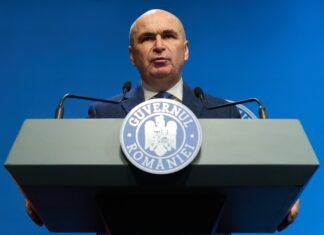President Donald Trump recently announced a 10% increase in tariffs on goods imported from Canada. This move follows the airing of an anti-tariff advertisement in Ontario featuring a quote from former President Ronald Reagan. Trump labeled the advertisement as „a fraud” and expressed his frustration with Canadian authorities for not pulling it ahead of the World Series games. This announcement comes on the heels of Trump’s decision to suspend trade negotiations with Canada due to his dissatisfaction with the government-funded advertising campaign in the province.
In response to the escalating tensions, Ontario Premier Doug Ford confirmed that the anti-tariff campaign would be halted, although the ads will continue to run through the remainder of the weekend. Canadian Minister of Trade Dominic LeBlanc has emphasized Ottawa’s commitment to maintaining a constructive dialogue with Washington, hoping to mitigate the consequences of these rising tariffs.
The Canadian economy, heavily reliant on exports to the United States, faces significant challenges with the already high tariffs in place. Currently, about 75% of Canadian goods find their way into the U.S. market, making the stakes particularly high. The freshly imposed tariffs will further exacerbate the financial strain on Canadian businesses, which are already navigating a complex landscape of international trade relations.
Effective communication has become increasingly vital as both nations grapple with the repercussions of these policies. While Canada hopes to foster a collaborative relationship, the recent actions by the Trump administration indicate a more confrontational approach. As trade negotiations are tabled, the ripple effects of these tariffs will likely be felt not just in cross-border trade but also in the broader economic environment, affecting jobs and market stability on both sides.
The situation underscores the delicate balance of international relations, particularly concerning trade policy between the U.S. and Canada. Historical alliances and mutual economic benefits are now being tested as political decisions impact businesses and consumers alike. The potential for conflict over trade is a reminder of the interconnectedness of modern economies, where the actions of one country can have significant implications for another.
As the situation unfolds, businesses and policymakers will need to assess their strategies and respond to the changing landscape. The Canadian government is expected to explore various avenues to alleviate the impact of these tariffs, potentially seeking support from other international partners. Similarly, U.S. businesses directly affected will also likely advocate for reconsideration or modification of the tariff increase.
In conclusion, the recent tariff increase signifies a turbulent chapter in U.S.-Canada trade relations. With both sides eager to maintain dialogue, the focus now shifts to how effectively they can negotiate terms that ensure mutual benefits while navigating the complexities of domestic political pressures. The outcome of this confrontation may very well shape the future of trade partnerships in North America, leaving many to watch closely as developments unfold.






